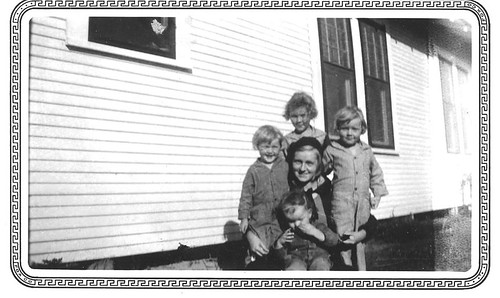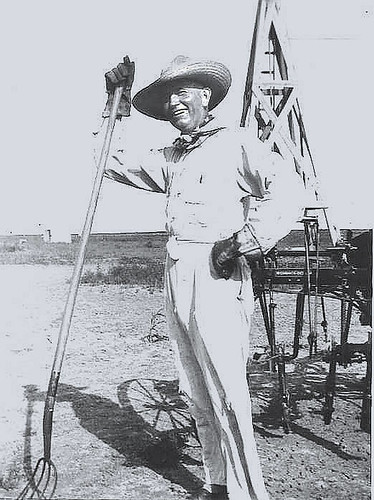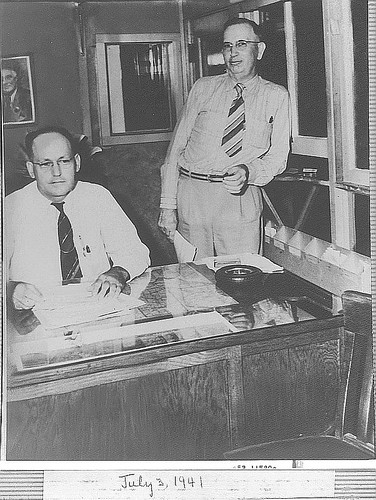Out the back door, beyond the hardware counter and the offices floating above it, was the weedy lot where tractors, plows, harvesters, and other farm implements were kept for convenient shopping by the company's farm and ranch customers. And through a side door under the balcony to the right was yet another storage area.
One year, at the height of the 1930s depressed economy, Mr. Cage set up a miniature steam-canning factory in that storage room for himself and his employees to use. I remember quite well my glimpse of the adults hard at work in there, canning beef in tin cans, in a project that was meant to cut down on cash spent at the grocery store. (Vegetables and fruits. such staples as tomatoes, beans, corn, and peaches, were canned at home in glass jars.)
But we were four lively little girls, about 4 to 7 years in age, and we were soon sent home in the care of our 16-year-old big sister. And the afternoon turned into an enchanted one for all of us. Our sister was a proficient pianist by then, and to entertain us and keep us corralled, she stood us in a semi-circle to her right as she sat on the piano bench. And she painstakingly taught us to sing "On the Good Ship Lollipop," from a music book that contained a number of songs from the Shirley Temple hit movie by the same title.
All four of us loved to sing, and we loved the attention. Furthermore, when our weary parents arrived home hours later, they applauded the little concert we put on for them with great enthusiasm. Over three-quarters of a century later, the memory is as fresh and as sweet as ever. And I'd be as happy to sing the entire chorus for you, about bon-bons playing "on the sunny beach of peppermint bay," as I would have been that afternoon when I first learned it and sang it with my sisters.

This old snapshot shows us at a slightly younger age, the 18-month-old baby in the oldest sister's lap.


